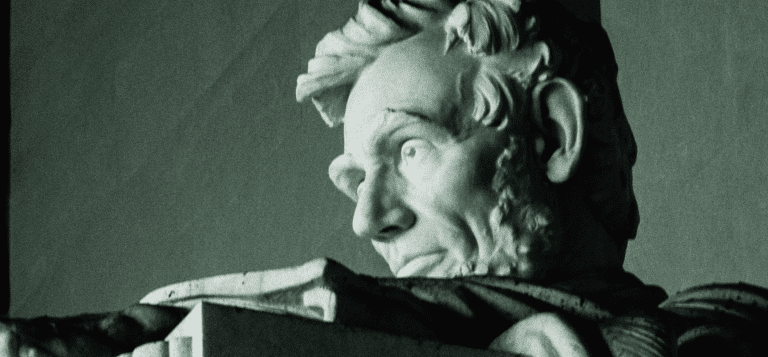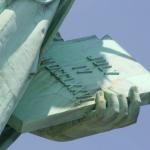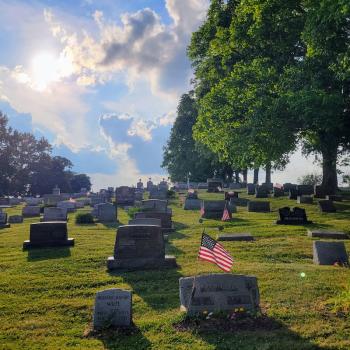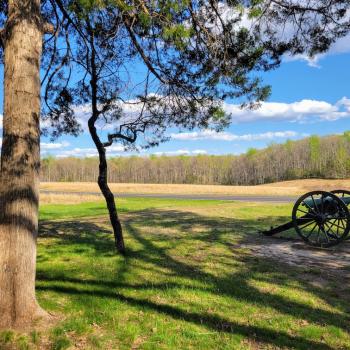Happy Independence Day to you all! Political self-determination is a human necessity because it gives scope to love. Mark Helprin in one of his novels calls America the “ardent unlimitedness.” Let us always be grateful for the limitless American mission to see and honor the dignity of every human life and to pursue that mission more earnestly today than we did yesterday. That mission is our glory and our judgment.

Last year, I posted this for Massachusetts Citizens for Life (MCFL), for which I serve as Chairman of the Board. It is a manifesto of the ethos behind MCFL’s Lincoln Forum for Human Dignity, a liberal arts and high culture approach to igniting a civic conversation about human dignity and its requirements. My blogging partner has graciously acceded to its presentation here though it is argued without explicit recourse to Christian data. Suffice it to say: whatever is required of every human by natural law (to care for any suffering human, especially the dispossessed) is even more intensely required of a Christian.
America is bleeding on the margins: at the border, in the tormented hearts of unsupported mothers, in our children. Every Christian must resonate to the bone with the cry that every wound be bound up. We must be ever more pro-life, across every border in this fragmented world.
The Ideal Always before the Pro-Life American
Justly felt, our pride as Americans on this Independence Day. A rare clarity thinned the obscurity of world history when that Declaration was made: all men are created equal, endowed by their Creator with certain unalienable rights, that among these are life, liberty, and the pursuit of happiness.
Never had a nation been founded on such a declaration of the equal dignity of each human life. And therein lies the great paradox of America: to be a nation whose particular mark is dedication to a universal truth.
That’s what Lincoln reminded us as he made a stop at Philadelphia’s Independence Hall on his way to Washington, D.C., for his first inauguration, in 1861:
“I have never had a feeling politically that did not spring from the sentiments embodied in the Declaration of Independence. …I have often inquired of myself what great principle or idea it was that kept this Confederacy so long together. It was not the mere matter of the separation of the Colonies from the motherland; but that sentiment in the Declaration of Independence which gave liberty, not alone to the people of this country, but, I hope, to the world, for all future time. It was that which gave promise that in due time the weight would be lifted from the shoulders of all men.”
The American Declaration that all humans are created equal meant the founding of one nation, yes, but all the dispossessed of the world, all those subjected by tyrants and oligarchs, were now to have something of an American aspiration. And that wind would blow through every nation on earth.
From the Founding, we failed our own vision. The self-contradiction of slavery was so absurd as to be ridiculous, if it weren’t for the incalculable horrors, the infernal terror, involved in the denial of the right to life, liberty, and the pursuit of happiness to black Americans.
And we have been tempted since to betray the American Declaration, for increase of power and wealth and comfort tends to corrupt. As we become oligarchs, we compromise on equal dignity:
“When we were the political slaves of King George, and wanted to be free, we called the maxim that ‘all men are created equal’ a self evident truth; but now when we have grown fat, and have lost all dread of being slaves ourselves, we have become so greedy to be masters that we call the same maxim ‘a self-evident lie’” [from the 1855 letter to George Robertson].
This betrayal tends to metastasize. As the Second Party System collapsed in the mid-1850s, one of the emerging contenders were the xenophobic, nativist, anti-immigrant Know-Nothings. For these, Lincoln had the perfect words:
“I am not a Know-Nothing. That is certain. How could I be? How can any one who abhors the oppression of negroes, be in favor of degrading classes of white people? Our progress in degeneracy appears to me to be pretty rapid. As a nation, we begin by declaring that ‘all men are created equal.’ We now practically read it ‘all men are created equal, except negroes.’ When the Know-Nothings get control, it will read ‘all men are created equal, except negroes, and foreigners, and Catholics.’ When it comes to this I should prefer emigrating to some country where they make no pretence of loving liberty—to Russia, for instance, where despotism can be taken pure, and without the base alloy of hypocracy [sic]” [from the 1855 letter to Joshua Speed].
Pro-lifers must always be the polar opposite of the Know-Nothings. We must be the partisans of all humanity. Outdated political allegiances might tempt us to cut corners, but we must never do so. The pro-lifer must hold to the American Declaration, without exception and without dilution. We are know-somethings. We know that every single human life has equal dignity.
As an American should not look on the refugee as an alien, so should we not look on the unborn child as an alien invader either, even if he or she was “unplanned.” We know that declaring “all men are created equal” can have no codicil, such as “except the refugee” or “except the unborn child.” We will offer radical hospitality to every single human, for as we do to the least of these, we do unto the Lord.
We will maintain the American Declaration to the end, whole and high. That means the fire of revolution must never cease to burn in us. But as the one Revolution has occurred, it is in patience and with trust in providence that we commit ourselves to working through democratic and republican processes to see that America, at last, realize, without exception and without dilution, the truth of her Declaration. Lincoln reminisces to Speed:
“In 1841 you and I had together a tedious low-water trip, on a Steam Boat from Louisville to St. Louis. You may remember, as I well do, that from Louisville to the mouth of the Ohio, there were, on board, ten or a dozen slaves, shackled together with irons. That sight was a continued torment to me; and I see something like it every time I touch the Ohio, or any other slave-border. It is hardly fair for you to assume, that I have no interest in a thing which has, and continually exercises, the power of making me miserable. You ought rather to appreciate how much the great body of the Northern people do crucify their feelings, in order to maintain their loyalty to the Constitution and the Union.”
We feel the torment of every human, especially those who are killed with their right to life unrecognized. We crucify those feelings, so that we, with both serenity and urgency, may carry on the public deliberation and charitable works necessary to exorcise the Know-Nothing spirit blind to the equal dignity of each human life. This great day, we give thanks to the good Creator for this great nation, and for the Declaration that changes everything.
















